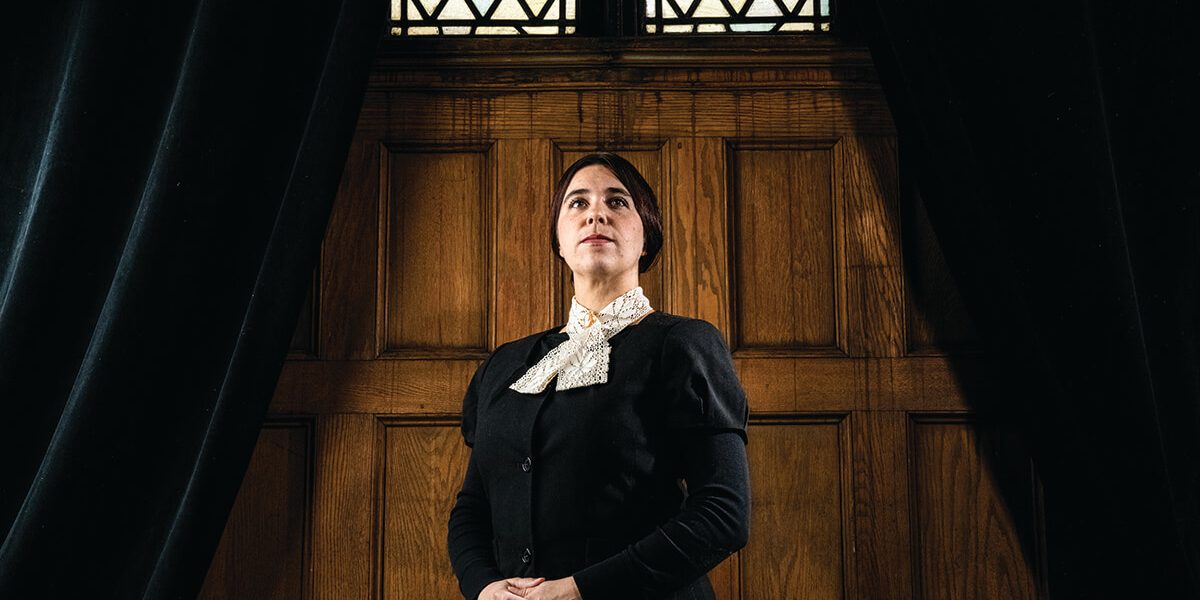Arts & Culture
The Moment Was Now
A historical musical takes an encore in Mount Vernon.
The day that actress Jenna Rose Stein landed the role of Susan B. Anthony in the race-and labor-themed musical The Moment Was Now, her daughter, Annabel, was watching a historical TV show called The Who Was? Show. That episode’s biography? Susan B. Anthony.
That was back in June, when the play was casting for its September premiere at the Emmanuel Episcopal Church in Mount Vernon. Back by popular demand, the musical will be reprised this month—Women’s History Month—with seven performances between February 28 and March 8. The show is set in post-Civil War Baltimore in 1869; a year before African-American males were given the right to vote.
Playwright and retired labor organizer Gene Bruskin says, “The play reveals the impassioned search for unity” by now-legendary Americans committed to equality, including Anthony, the black feminist Frances Harper, the immortal Frederick Douglass, and his partner in the black labor movement, Isaac Meyers. The question of who should receive equality under the law—and more vexingly, when—creates the conflict (argued in full-throated song) at a meeting convened by Douglass.
This year marks the 150th anniversary of the 15th Amendment to the Constitution, which gave African-American males the right to vote, and the 100th anniversary of the 19th Amendment, providing the same rights to women. The long gap between the granting of those rights ate away at Anthony, prompting deep resentment.
“Most people only know the work [Anthony] did as an old woman,” said Stein, who portrays Anthony in her mid-40s. “Early on she fought for abolition, women’s labor rights, the right for women to own property, and the right to divorce.”
As a Quaker teenager in New York, Anthony collected anti-slavery petitions. Later, she helped to create an all-female temperance movement. Once men were allowed to join, says Stein, the women were silenced. Her political break with Douglass (which their friendship survived) was the result of black male suffrage, which excluded women of all colors.
In perhaps her most powerful line in the play, Anthony tells Frances Harper: “I will cut my right arm off to stop the Negro male from getting the ballot” before women. They did and she did not, and the struggle continued until women got the vote in 1920, roughly a decade- and-a-half after Anthony’s death.
“Only by knowing the truth about our great leaders and the conflicts that they struggled with, can we learn from the past,” Bruskin says. Which is Stein’s hope for Annabel, who will watch her mother portray the suffragette again on the Emmanuel Episcopal Church stage.
